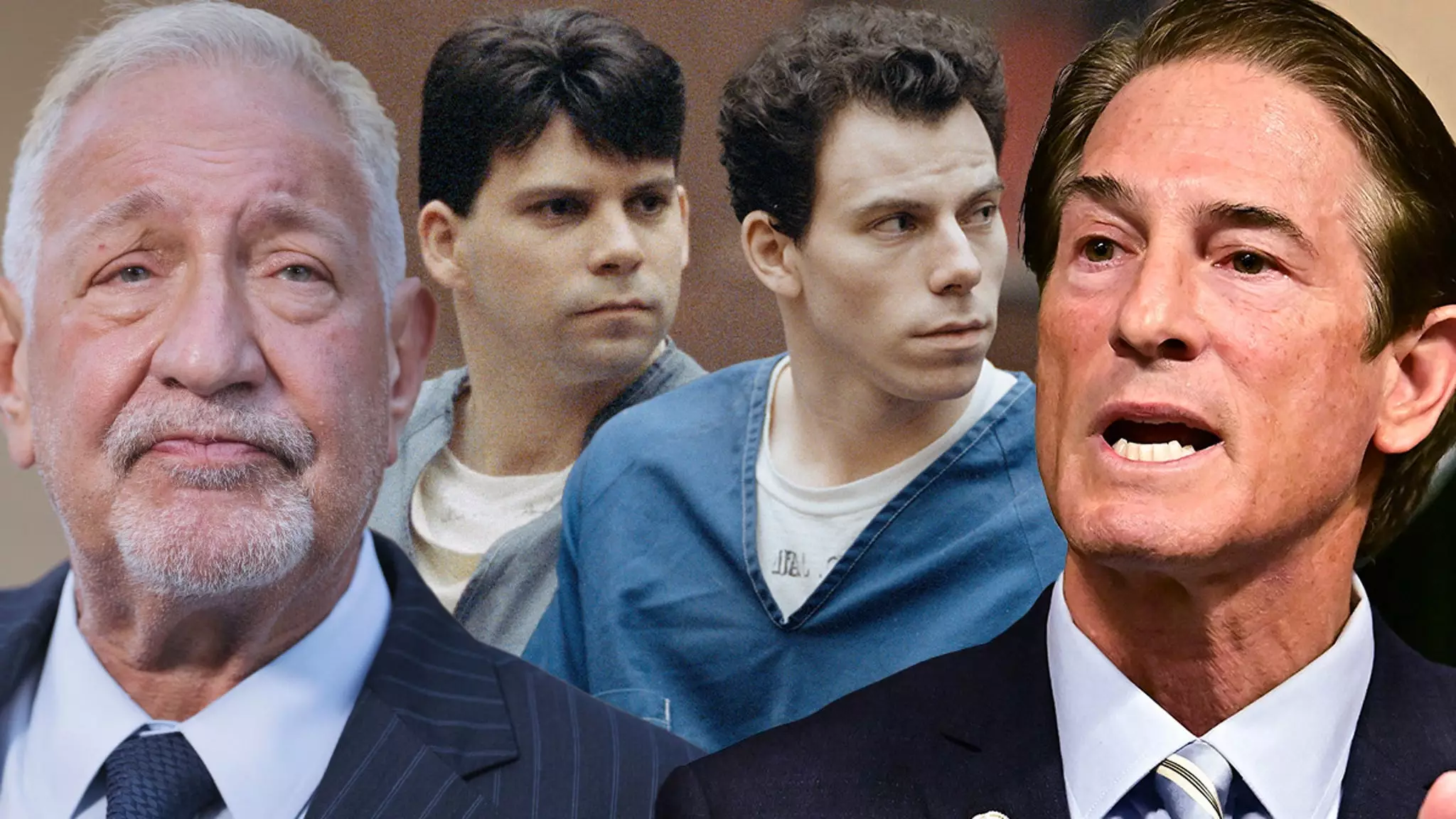In an unfolding legal drama that has captivated public attention, Los Angeles County District Attorney Nathan Hochman has firmly asserted that he will not recuse himself from the highly publicized case involving Erik and Lyle Menendez. Despite calls from the brothers’ legal counsel, Mark Geragos, for his stepping aside due to alleged conflicts of interest, Hochman has vehemently rejected the notion. This assertive stance raises questions not only about the integrity of legal proceedings but also about the emotional ramifications for the Menendez family, whose past has become intertwined with their present situation.
Hochman’s claims carry weight; he argues that there are no substantive legal grounds necessitating his recusal and labels the defense’s push as a “drastic and desperate” maneuver. This rhetoric underlines a broader urgency as he emphasizes that the core of this case revolves around resentencing debates, which he publicly opposes. It is vital to note that Hochman grew up in the same Beverly Hills community as the Menendez brothers, creating a complex dynamic that oscillates between personal history and professional obligation. The intricacies of these relationships only add layers to an already complex emotional and legal landscape.
Trauma and Legal Ethicalities
Adding to the tension, the Menendez brothers’ defense team contends that Hochman’s actions could be retraumatizing to their family, which brings to light critical conversations around victims’ rights. Under Marsy’s Law, which was enacted to protect victims from undue distress during legal proceedings, Hochman’s choices—such as showcasing disturbing crime scene photographs in court—may have crossed ethical lines. Such actions reportedly led to a traumatic experience for an elderly family member, exacerbating the sense of distress surrounding this long-drawn case. This situation prompts an urgent inquiry into the balance between legal rigor and human compassion, especially when the emotional scars of past events echo into the present.
The defense has not hesitated to voice its disapproval. Bryan Freedman, another attorney for the Menendez family, has not only criticized Hochman’s tenure but has also drawn attention to broader systemic societal issues. Freedman accuses Hochman of neglecting pressing criminal concerns, such as increasing instances of burglary and theft in Los Angeles, in favor of seeking media attention and advancing views on childhood trauma’s effects. He argues that Hochman’s views are disconnected from the realities faced by victims and ordinary citizens alike. In this context, the Menendez case serves as a litmus test for the efficacy of the justice system in recognizing and validating trauma rather than merely focusing on punitive actions.
The Upcoming Legal Battle
Looking ahead, both the legal teams and the public await a forthcoming court hearing that promises to be pivotal. The judge will deliberate over the recusal motion while also addressing the admissibility of a risk assessment report, critical to assessing the future implications for Erik and Lyle Menendez. Under the directive of Governor Gavin Newsom, this report will play a crucial role in shaping decisions regarding potential clemency for the brothers, whose lives have become synonymous with controversy since their conviction of parricide in 1989.
This trial does not merely represent a battle between the past and the present; it embodies a struggle for identity and redemption from a deeply painful history. The Menendez brothers contend that years of rehabilitation in prison should warrant new consideration of their sentences, positing that compassion should play a role in the legal process. Their request for clemency and claims of newly discovered evidence further complicate an already intricate legal narrative.
Through the lens of the Menendez case, one can observe fundamental questions about justice, accountability, and the ethical responsibilities of those who enforce the law. As this dramatic saga unfolds, it remains to be seen how the justice system will address not only the legal aspects but the deep-seated emotional ramifications intertwined with this infamous legacy.

